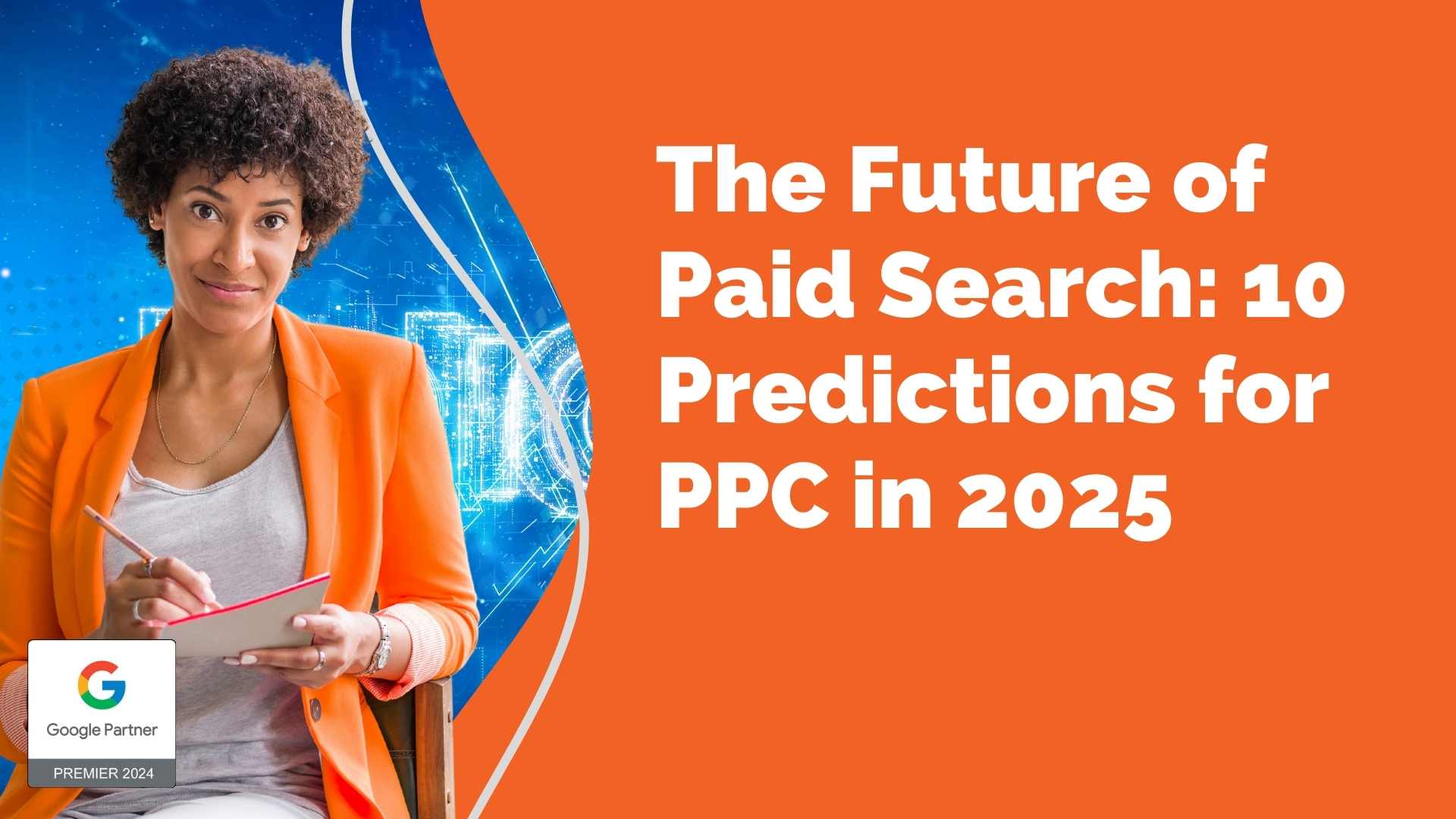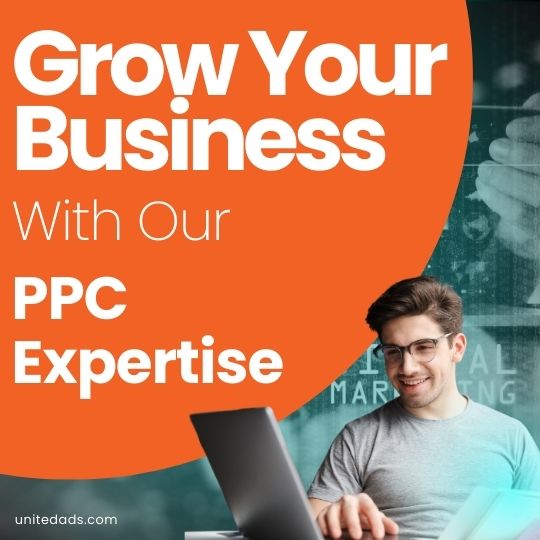About the Author
Alex is Founder & Strategic Advisor at UnitedAds, a leading digital marketing agency specializing in PPC Management.
With nearly two decades of industry experience, he has become a recognized authority in creating high-impact Google Ads campaigns that drive business growth.
Under his leadership, UnitedAds has built a strong reputation for delivering data-driven strategies that maximize ad performance and improve online visibility. Alex’s expertise lies in leveraging the full potential of PPC to help businesses scale efficiently and achieve sustainable success in the competitive digital marketing landscape.
Paid search, once a battlefield for basic text ads and simple keyword bidding, is poised for a radical transformation by 2025. As we brace for monumental shifts in digital marketing, it’s no longer enough to trust that the old techniques will keep delivering. Marketers must adapt—or risk obsolescence.
From AI-driven automation to an era of privacy-first marketing, the PPC landscape will demand not just strategic finesse, but bold reinvention.
Here are 10 predictions for how paid search will evolve by 2025, and why failing to anticipate these changes could spell disaster for your brand.
1. Automation Will Be Non-Negotiable
First and foremost, the days of painstaking manual campaign management will be over. By 2025, machine learning tools will run circles around human optimizers.
They’ll fine-tune bids, test creative, and learn user behavior patterns at scale, leaving marketers who rely solely on human intuition in the dust. Those who resist this shift will inevitably lose ground to competitors unafraid to hand over the reins to smarter, faster algorithms.
2. First-Party Data Will Reign Supreme
Marketers clinging to third-party data will soon find themselves with nowhere to hide. As privacy regulations tighten and cookie-based tracking all but disappears, success in PPC will hinge on first-party data—consent-based insights your customers willingly share.
Those who fail to invest in robust CRM systems, loyalty programs, and ethical data acquisition strategies will find their targeting efforts floundering in a privacy-conscious world.
3. Contextual Targeting Will Outperform Old School Audience Building
The notion that precise demographic targeting can shoulder the entire burden of PPC success will be laughably outdated.
With regulatory and consumer pressure forcing a retreat from granular personal targeting, contextual advertising—reaching users based on the content they’re consuming—will emerge as the smarter, more honest approach. Advertisers who persist in hyper-personalizing without consent will face severe backlash, both from regulators and audiences.
4. Voice Search Advertising Will Finally Deliver on Its Promise
It’s time to move beyond the empty talk about the “rise of voice search.” By 2025, voice-driven interfaces—from smart speakers to in-car assistants—will be indispensable for certain verticals.
Brands that fail to adapt their PPC strategies for voice-activated queries will concede market share to those that understand how to reach consumers who search with their words instead of their keyboards.
5. Visual and AR-Powered PPC Will Redefine ‘Relevant’
Static text ads will look like museum artifacts in the interactive era. By 2025, paid search will blend seamlessly with augmented reality (AR), enabling users to point their cameras at products and scenes to trigger contextually relevant PPC campaigns.
Advertisers that lag in experimenting with AR-enhanced creative will forfeit their chance to capture users in the moment—and the results will be catastrophic for those too timid to evolve.
6. AI-Generated Creative Will Topple Conventional Copywriting
If you still believe that only human copywriters can craft compelling ads, think again. Advanced generative AI will produce not just ad copy, but also entire creative concepts tailored to micro-segments of your audience.
Marketers resisting AI-generated creative will watch as their competition delivers precisely what customers crave—in real-time, at scale, and with pinpoint accuracy.
7. Integrated Shopping Experiences Will Dominate SERPs
Marketers who think PPC exists in a silo are setting themselves up for failure. By 2025, paid search ads won’t merely point to external landing pages—they’ll offer integrated shopping experiences directly on the search results page.
Those who cling to outdated “click-out” models will lose conversions and revenue as consumers gravitate toward frictionless, immediate purchase options right inside their search engines.
8. Ethical Advertising Will Shift From Nice-to-Have to Must-Have
Sloppy ethics and shady tactics will no longer slip under the radar.
Consumers, regulators, and even AI-driven quality systems will punish brands that mislead or exploit users. By 2025, only those who adopt transparent messaging, offer genuine value, and adhere to ethical advertising standards will earn trust—and the conversions that come with it.
9. AI-Enhanced Analytics Will Crush Gut-Feel Decision Making
In a world where machine learning can predict user intent with astonishing accuracy, “gut feelings” will look laughably primitive. Marketers who embrace predictive analytics tools will outmaneuver competitors still fumbling through spreadsheets.
Post-2025, the winners will be those who act on algorithmic insights instantly, not those who wring their hands over last quarter’s results.
10. True Omnichannel Orchestration Will Set the Winners Apart
Finally, those who still treat paid search as a siloed discipline will fail to keep up. By 2025, the most successful advertisers will orchestrate PPC within a unified omnichannel strategy—harmonizing search, social, display, video, and emerging platforms.
Those who don’t integrate will find their messaging fragmented, their audiences confused, and their ad dollars wasted.
Conclusion: Adapt or Face Irrelevance
The paid search landscape of 2025 is set to demand nothing less than total reinvention.
Marketers clinging to legacy tactics, outdated targeting methods, and half-hearted attempts at privacy compliance will find themselves outgunned at every turn. True innovators—those who embrace automation, invest in first-party data, experiment with new formats, and unify their channels—will thrive.
The question isn’t whether PPC will change, but whether you’ll change fast enough to matter when it does.







